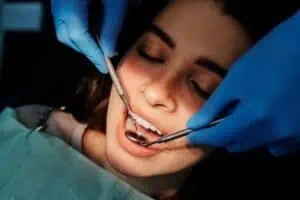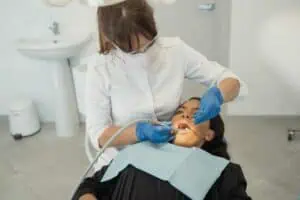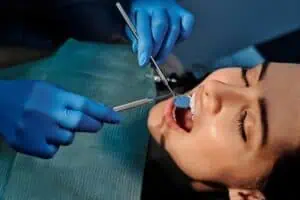
Understanding Dementia: A Brief Overview
Dementia is a progressive neurological disorder that primarily affects cognitive functions such as memory, reasoning, and behavior. Alzheimer’s, the most common form of dementia, accounts for up to 80% of all cases. While the exact causes of these conditions are still being unraveled, researchers have uncovered potential links between oral health and cognitive decline.
The Oral-Systemic Connection
The mouth is often referred to as the “gateway to the body,” and for good reason. Neglecting oral hygiene can lead to a buildup of harmful bacteria in the mouth, which can potentially travel through the bloodstream and affect other bodily systems. This connection, known as the oral-systemic link, is the key to understanding how poor oral health may contribute to cognitive decline.
One of the most prominent factors in this connection is gum disease. Gum disease occurs when bacteria accumulate along the gumline, leading to inflammation and potentially infection. Research suggests that the inflammatory response triggered by gum disease may play a role in the progression of dementia and Alzheimer’s. In fact, inflammation has been linked to the formation of beta-amyloid plaques in the brain, a hallmark of Alzheimer’s disease.
The Path from Mouth to Mind
As harmful bacteria flourish in the mouth due to poor oral hygiene, the body’s immune response activates, resulting in chronic inflammation. This inflammation can serve as a bridge between oral health and cognitive decline. When inflammation persists over time, it may contribute to the breakdown of the blood-brain barrier—a protective barrier that regulates the movement of substances between the bloodstream and the brain. This breakdown could potentially enable harmful substances from the mouth, including bacteria and inflammatory molecules, to reach the brain and trigger or exacerbate cognitive decline.
Additionally, the bacteria associated with gum disease may release toxins that can affect nerve cells, potentially interfering with brain function. Recent studies have even identified specific oral bacteria in the brains of Alzheimer’s patients, providing compelling evidence of the oral-brain connection.
The Importance of Oral Hygiene in Cognitive Health
Recognizing the connection between oral health and dementia shows just how important it is to maintain good oral hygiene. Simple practices such as regular brushing, flossing, and checkups with your dentist in Asheboro can significantly reduce the risk of gum disease and the associated inflammation.
Moreover, promoting oral health in older adults can have an even bigger impact. As people age, they may face challenges in maintaining their oral hygiene due to physical limitations or cognitive decline. Caregivers and healthcare professionals play a crucial role in ensuring that proper oral hygiene is maintained, potentially mitigating the risk of further cognitive deterioration.
The emerging link between dementia and oral health highlights the surprising, yet very real, connections within the human body. While the exact mechanisms are still being explored, the evidence suggests that maintaining good oral hygiene can be a proactive step in supporting cognitive health. Individuals, caregivers, and healthcare providers should recognize the potential impact of oral hygiene on overall well-being and follow a good oral hygiene routine. By nurturing a healthy smile, we might also be nurturing a healthy mind – one that holds onto cherished memories for years to come.















